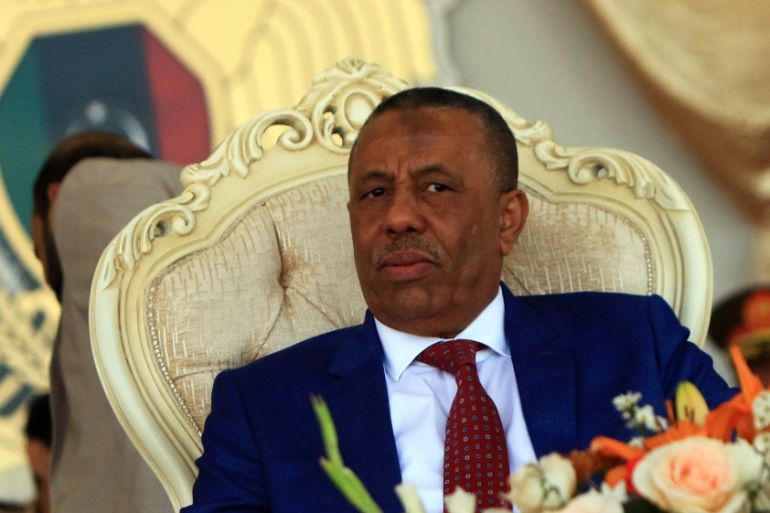Libya’s eastern-based government resigns amid protests
Protesters have taken to the streets in several cities in recent days in anger over poor living conditions.

An interim government allied with Libya’s eastern-based renegade commander Khalifa Haftar has resigned amid protests over power cuts and deteriorating living conditions.
Ezzel-Deen al-Falih, a spokesman for the Tobruk-based House of Representatives (HoR), said Prime Minister Abdallah al-Thani tendered the government’s resignation to Speaker Aguila Saleh late on Sunday.
Parliamentary spokesman Abdallah Abaihig said HoR lawmakers would review the resignation of al-Thani’s government, which is not internationally recognised, in their next meeting. No date has been set for the session.
Oil-rich Libya was plunged into chaos when a NATO-backed uprising in 2011 toppled longtime ruler Moammar Gaddafi, who was later killed. The country has since split between rival east- and west-based administrations, each backed by armed groups and foreign governments.
A 14-month offensive by Haftar’s forces to wrest control of the capital, Tripoli, from the internationally recognised Government of National Accord (GNA) crumbled in June, with the front lines now solidified near the central city of Sirte.
|
|
The HoR on Friday accused the Central Bank and the GNA of “plundering” the country and neglecting the east, in apparent efforts to deflect blame for the deterioration of public services.
In recent days, hundreds of people have taken to the streets of Benghazi and other eastern cities to protest against crippling electricity shortages and poor living conditions, setting tyres ablaze and blocking traffic on several major roads.
On Saturday, protests also erupted in al-Marj, a Haftar stronghold.
In a statement, the United Nations Support Mission in Libya (UNSMIL) said at least one civilian had reportedly been killed and three others wounded in al-Marj. It called for “a thorough and immediate” investigation into “the reported excessive use of force against peaceful demonstrations” and the speedy release of a number of detained protesters.
UNSMIL statement on the protests in al-Marj city on 12 September 2020https://t.co/aKPQLnOgeP pic.twitter.com/SUkM3LNHOd
— UNSMIL (@UNSMILibya) September 13, 2020
The demonstrations in eastern Libya mirror similar protests in recent weeks over power cuts and corruption in Tripoli and other western cities.
UNSMIL said the protests across Libya were “motivated by deep-seated frustrations about sustained poor living conditions, shortages of electricity and water, rampant corruption, misgovernance, and a lack of service provision throughout the country”.
The UN mission said the protests underscore “the urgent need to lift the oil blockade” and the return to a “full and inclusive” political process to end Libya’s years-long conflict.
Powerful tribes in eastern Libya loyal to Haftar closed oil export terminals and choked off major pipelines at the start of the year to pressure the GNA.
The US Embassy in Libya said Haftar agreed to reopen oil fields and terminals no later than Saturday. By Sunday evening, it was not clear whether the blockade had been lifted.